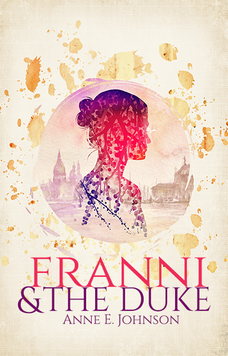
"Franni and the Duke," a middle-grade novel, sets a fictional mystery against a specific historical backdrop. It takes place during rehearsals for Arianna, an opera by the great composer Claudio Monteverdi. When Franni and her older sister Alli run away to Mantua, they both find work in Monteverdi's company. A messenger from the north announces that the next duke of the town of Bergamo is missing, and he may well be in Mantua. Alli notices that Luca, a singer she's in love with, fits the missing Duke's description. Although Franni thinks Luca is a pompous idiot, she promises for Alli's sake to keep Luca's secret safe and protect him from bounty hunters and Bergamo's rival family. She does this with the help of the company's set designer, a worldly wise and world-weary dwarf named Edgardo, who is not exactly what he seems.
For sixteen years I taught music history and theory at an undergraduate certificate program in New York City. The only thing that could have pulled me away from that work was writing fiction. Around 2008 I started getting interested in writing, particularly for kids under age 13. I took a basic course with the Institute for Children's Literature. Most of the little assignments were fun and interesting, but the final project really got me fired up.
I was supposed to write the first three chapters of a children's novel. At the time, I was still teaching while working toward a PhD in Medieval musicology. I wrote the opening of a novel about a boy in the 13th-century England and his adventures seeking the stolen page of a book of Gregorian chants. Although I never finished my doctorate, I did finish that novel. Trouble at the Scriptorium was published in 2012.
 Claudio Monteverdi
Claudio Monteverdi The production itself is half the fun of learning about this opera. It was financed by Duke Vincenzo Gonzaga of Mantua, Italy, whom I also include as a character. Franni meets both these historical men while she sews costumes for the opera. It was a thrill to do research on and then describe the duke’s exquisite palazzo, which still stands in Mantua.
Writing historical fiction requires delving into a whole new world. Sort of like science fiction, if you think about it.

